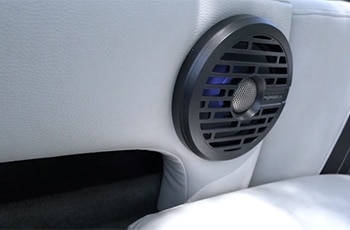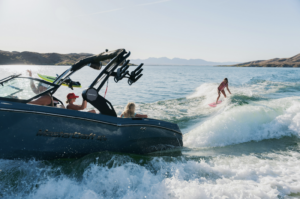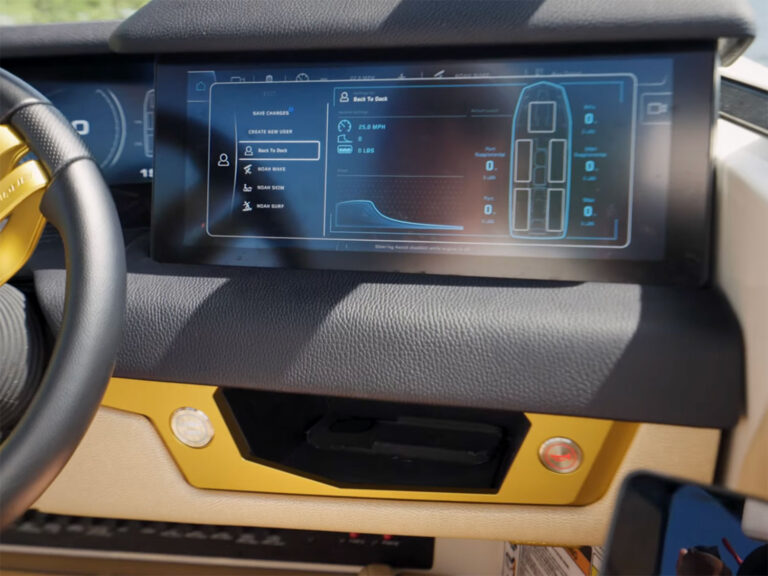
Set Your Goals and Your Budget
When it comes to marine stereo systems, your only limits are your budget and the size of your boat. “You can go as simple or elaborate as you want,” says Colin Brumbaugh, vice president of Roswell Marine Audio at Roswell Global. “If you’re on a budget, you could stop at a head unit with an onboard amplifier and four speakers. The next step is getting dedicated amplifiers for your speakers. Then subwoofers, tower speakers, and it goes on and on.” Set your goals and your budget from the outset, then go from there.
Learn more about the impact of proper speaker placement.
Amp It Up
Onboard amplifiers in a marine stereo system are relatively weak, so while they’ll suffice for a basic setup, you’ll need to add dedicated amplifiers for your speakers if you plan on taking your system to the next level. “With an amplifier, you can get much greater amounts of power as well as a better audio signal because you’re not relying on a catchall device,” Brumbaugh says. “That amplifier’s only job is to provide clean power to your speakers.” The most important thing to consider when shopping for an amplifier is what’s called headroom. “If you have 50-watt speakers, you don’t want to buy an amplifier that only puts out 50 watts per channel, because that means the amplifier is working as hard as it can to give those speakers the power they can handle, which overworks the amplifier and the speakers.” Brumbaugh says a good rule of thumb is to get an amplifier with 20-30 percent more wattage than your speakers require.
Materials Matter
Durability is key in any marine environment, especially in saltwater, so you need to make sure your new marine stereo components will hold up to the elements of your boating environment. “You want to look for certain types of plastics like Centrex,” Brumbaugh says. “Materials that have good UV resistance and salt resistance.” Also, make sure crossover and amplifier circuit boards are conformal coated, so they’ll hold up in a humid environment.

Bass From Above
A tower provides additional real estate to expand your audio arsenal. When it comes to hanging speakers, options abound, but they’ll likely fall into two categories—soundbars or self-contained tower speakers. The biggest advantage of soundbars is space. They cluster together multiple smaller speakers, so they don’t extend as far down as dedicated tower speakers. However, what you save in space you’ll give up in the level of the audio. “For wakeboarding in particular, if you’re tying to get sound 60, 70, 80 feet back to someone behind the boat, those soundbars aren’t going to be able to get as loud as larger hanging speakers,” Brumbaugh says.
Test Drive Your Tunes
You wouldn’t buy a boat without test driving it, so why would you buy components of a marine stereo system without hearing it? Instead of scouring websites for specs, head to your local dealer so that you can actually see, feel and, most importantly, hear the product. “We have displays at our dealerships that come in a variety of configurations,” Brumbaugh says. “You can demo various boat speakers, subwoofers, Cybox, so you can see and hear everything. There’s no substitute for trusting your ears.”
For more information about marine-ready stereo systems, visit Roswell Marine.







